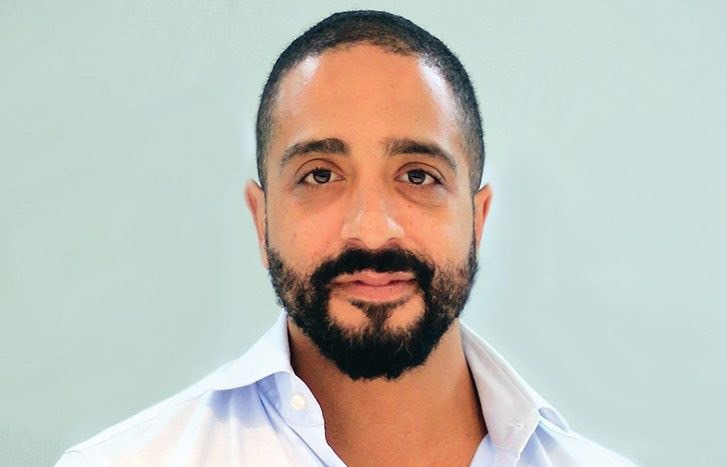Michael Piro, CEO of Wink Hotel, spoke with Việt Nam News reporter Vũ Hoa to evaluate Việt Nam's economic growth and key focuses for the year ahead.

Despite 2023 being a difficult year with global growth slowing down, Việt Nam's economic development has shown its resilience and readiness to overcome challenges to become one of the world's leading economies in relation to positive growth rates.
Michael Piro, CEO of Wink Hotel, spoke with Việt Nam News reporter Vũ Hoa to evaluate Việt Nam's economic growth and key focuses for the year ahead.
In your assessment, what is your company's outlook on the Vietnamese economy for the year 2024? Are there specific trends or factors that your company anticipates will significantly impact the economic landscape in Việt Nam?
In 2023, the economy grew by just over 5 per cent improving as the year progressed and as the manufacturing sector, the usual powerhouse of the economy, strengthened, supported by export demand. FDI, both registered and disbursed, set record highs last year, with the majority of registered FDI going to the manufacturing sector. We see the economy in 2024 improving on its performance in 2023 with a strong growth outlook and robust FDI inflows and resilient domestic consumption.
Building on the momentum from the end of 2023, we expect the manufacturing sector will remain the economy’s powerhouse. Việt Nam offers a strategic haven for supply chain diversification and will continue to attract foreign investment with its potential as an APAC distribution hub. Many international firms also see Việt Nam as neutral and stable ground relative to its neighbours, another reason for its surge in popularity. We are seeing demand for high-quality build-to-suit industrial products from manufacturers, who are also prioritising green spaces, employee well-being and ESG (Environmental, Social and Governance) compliance. Developers in this space who can cater to these evolving needs will come out on top in the end.
Beyond the manufacturing sector, we witnessed the service sector continue its post-COVID recovery. International arrivals exceeded the government’s target in 2023, as Việt Nam welcomed over twelve and a half million travellers, but this figure has yet to return to its 2019 high of 18 million. Visa policy reforms have been a welcome sight; however, we believe more needs to be done on this front to keep up with our neighbours. Still, the Việt Nam hospitality industry’s performance should improve as we expect Chinese visitors to come back in full force this 2024.
The residential real estate sector has been at a standstill for the last few years as the country wrestled with scandals. Ministries have been paralysed by indecision in the aftermath of the alleged bond frauds. That said, we believe and hope that 2024 will be the start of the “thawing” of the licensing process, particularly residential developments, which have been few and far between in recent years. As such, we expect to see more residential projects come to the market and be announced going forward.
Given the anticipated economic conditions in Việt Nam for 2024, how is your company adjusting its business strategies to navigate potential challenges or capitalise on opportunities?
On the development front, we remain with our pipeline rollout and are not making any major adjustments to our strategy. We remain dedicated to the rollout of our Wink Hotels and Core5 Việt Nam platforms, with new launches for the two platforms coming in 2024. The economy’s recovery post-COVID has seen its share of hiccups; however, we remain confident in the long-term prospects of Viet Nam’s economy and expect 2024 to build upon the performance from the last few years.
Việt Nam’s ready-built-factory (RBF) market is booming, and we believe we are in an excellent position to take advantage of the growing interest. The ready-built warehouse market is a little less straightforward. It requires more thought to perform well in current conditions, namely adapting sustainability practices to local contexts, incorporating employee well-being and offering holistic solutions beyond design. Sustainability is becoming a more prominent topic in the market. As more international firms and more FDI come to Việt Nam, developers will be subject to more fundamental requirements for manufacturers to relocate.
We are opening new Wink Hotels in Tuy Hoà and Cần Thơ in 2024 and have high hopes for these markets, which would be primarily driven by demand from local and business travellers. Since Wink Hotels’ launch to the public during the pandemic, we have received rave reviews from guests and industry experts. After a good start for the brand, we expect that the new year will bring even better performance to all of our properties as the country sees more international arrivals.
As previously mentioned, our firm expects residential real estate to make a comeback in 2024. The residential sector has been starved for supply since the end of the pandemic and has become the object of desire for many of our advisory team’s clients. As previously mentioned, we assume that the approval process will move relatively faster this year and both our development and advisory teams are setting their sights on residential projects in 2024. Whether this comes to fruition is entirely in the hands of the officials who preside over said process.
With global anxieties expected to cool down in 2024 and the US and Chinese economies recovering from a slow 2023, Việt Nam’s industrial real estate will lead the way, carried by the RBF market. Việt Nam’s industrial sector presents a compelling narrative of resilience, growth, and adaptation. By understanding the evolving demands of tenants and embracing sustainability, developers can thrive in this dynamic market and capitalise on Việt Nam’s unique potential. — VNS





